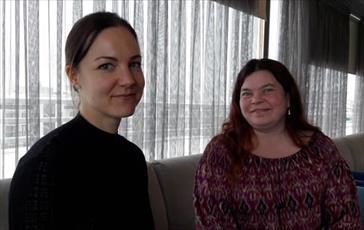On the 9th of February the Finnish stakeholders of the Clear Waters from Pharmaceuticals (CWPharma) project met in Helsinki to discuss their needs and viewpoints considering the emissions of pharmaceuticals into the environment.
Active pharmaceutical ingredients (APIs) have beneficial effects on human and animal health, but in the environment they are globally considered as an emerging environmental concern. The environmental fate of most pharmaceuticals and their effects on biota are poorly understood.
In October 2017 a consortium of 15 organizations from 7 Baltic countries started their work in the project CWPharma. The project focuses on filling the gaps of knowledge that exist on pharmaceuticals in the Baltic Sea Region. The work is coordinated by the Finnish Environment Institute SYKE.
The Baltic Sea has a large catchment area with 85 million inhabitants. Residues of various pharmaceutical ingredients – e.g. hormones, antibiotics, anti-inflammatory drugs and other analgesics – have been detected in the area´s sea water and fish, but it is difficult to make reliable emission estimation and risk assessment of APIs in the Baltic Sea Region.

Project Coordinator Noora Perkola (left) and Expert Pharmacist Sanna Siissalo met at the stakeholder meeting of the project CWPharma in Helsinki. © Eija Järvinen
Data on human consumption and the emissions of pharmaceuticals is inadequate in many countries, so is the environmental monitoring data. The data on veterinary APIs is even scarcer and largely non-existent throughout the Baltic Sea Region. The role of the pharmaceutical industry as an emission source is also unknown because the environment permits do not oblige the industry to analyze APIs in effluents. Additionally, there are big regional differences in, e.g. wastewater treatment methods and take-back of unused medicines in partner countries.
The aim of the three-year-long project is to give tools and recommendations on the best ways to reduce the emissions of APIs. The work includes, for example, estimating the current API emissions from the Baltic Sea Region and comparing different wastewater treatment methods and low-tech practices that control and reduce the emissions. The best existing practices of the partner countries will be shared to promote the sustainable management of APIs.
The project outputs should help a large number of stakeholders from wastewater treatment plant operators and doctors to local, regional, national and even EU authorities to reduce the emissions of pharmaceuticals to the environment. To ensure the efficient utilization and replication of the results, CWPharma will share the results with the stakeholders via training, guidance and continuous dialogue during project implementation. The first meeting with the Finnish stakeholders took place on the 9th of February 2018.
One of the stakeholders attending the meeting was the Association of Finnish Pharmacies, a professional organization of proprietary pharmacists. Expert pharmacist, Ph.D. Sanna Siissalo, who attended the meeting on behalf of the Association of Finnish Pharmacies, reported that the pharmacies are an important part of the disposal system of household pharmaceutical waste in Finland. Consumers can leave their unused and expired drugs at any pharmacy. This is made as easy as possible for customers. The system works quite well. The latest estimates by the Association of Finnish Pharmacies state that already 60–80 % of the unused drugs from households return to pharmacies.
“In our latest study in 2016, we found that each week approximately 10 kilos of pharmaceutical waste is disposed at each of the Finnish pharmacies. The yearly medical waste in Finland is estimated to be worth 95−125 million euros,” Sanna Siissalo states.
The coordinator of the CWPharma project, Ph.D. Noora Perkola, from SYKE Laboratory Centre states that the organizations representing different target groups play a very important role in the project.
“Their comments and ideas about how to make the outputs as useful and useable to the target groups as possible are very valuable for us who work in the project. It is important to share the information during and after the project so that the target groups can eventually use it in their future actions,” explained Noora Perkola.
CWPharma in a nutshell
- Duration: October 2017–September 2020
- The project consortium consists of 15 organizations from 7 Baltic countries (Denmark, Estonia, Finland, Germany, Latvia, Poland and Sweden). The work is coordinated by the Finnish Environment Institute SYKE.
- CWPharma is financed by the EU’s Interreg Baltic Sea Region Programme 2014–2020. The project is supported by the European Union´s Strategy for Baltic Sea Region Policy Area Hazards as an integrated part of the flagship on Pharmaceuticals in the Environment (PIE) – a Baltic Sea Region cooperation platform.
|